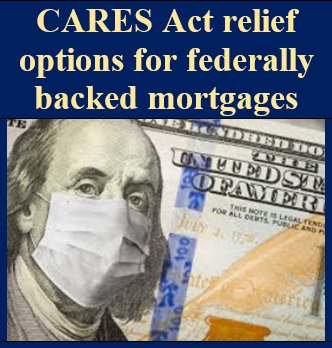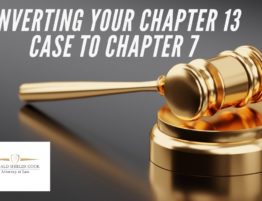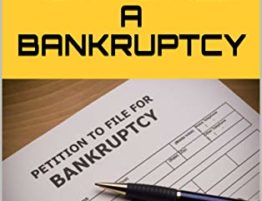
Loan modifications under CARES Act
Loan modifications under CARES Act. The law firm assists with loan modifications and mortgage relief for those impacted by the coronavirus pandemic.
This blog post discusses loan modifications and mortgage relief for those impacted by the coronavirus pandemic. Federal and state governments, and financial institutions and loan servicers, have announced plans to help struggling homeowners during this tragic time.
CARES Act Relief Options for federally backed mortgages
A new federal law, the Coronavirus Aid, Relief, and Economic Security (CARES) Act, puts in place two protections for homeowners with federally backed mortgages:
First, your lender or loan servicer may not foreclose on you for 60 days after March 18, 2020. Specifically, the CARES Act prohibits lenders and servicers from beginning a judicial or non-judicial foreclosure against you, or from finalizing a foreclosure judgment or sale, during this period of time.
Second, if you experience financial hardship due to the coronavirus pandemic, you have a right to request a forbearance for up to 180 days. You also have the right to request an extension for up to another 180 days. You must contact your loan servicer to request this forbearance. There will be no additional fees, penalties or additional interest (beyond scheduled amounts) added to your account. You do not need to submit additional documentation to qualify other than your claim to have a pandemic-related financial hardship.
If you don’t have a federally backed mortgage, you still may have relief options through your mortgage loan servicer or from your state.
Mortgage forbearance
Forbearance is when your mortgage servicer or lender allows you to pause (suspend), or reduce your mortgage payments for a limited period of time while you regain your financial footing.
Forbearance doesn’t mean your payments are forgiven or erased. You are still required to repay any missed or reduced payments in the future.
Make sure you understand how the forbearance will be repaid. There can be different forbearance programs or options, depending on the type of your loan.
If and when your income is restored, reach out to your servicer and resume making payments as soon as you can so your future obligation is limited.
Depending on the kind of loan you have, there may be different forbearance options.
For example, if you have a Fannie Mae, Freddie Mac, FHA, VA, or USDA loan, you won’t have to pay back the amount that was suspended all at once—unless you are able to do so.
At the end of the forbearance, your options can include paying all of your missed payments at one time, spread out over a period of months, or added as additional payments or a lump sum at the end of your mortgage.
Moratoriums suspend or stop foreclosure
Foreclosure is when the lender takes back the property after the homeowner fails to make required payments on a mortgage.
Foreclosure processes differ by state. Under federal law, a servicer generally cannot start the state foreclosure process until your loan is more than 120 days past due. There can be exceptions depending on your forbearance or loss mitigation program. Servicers have to work with you to avoid foreclosure.
What mortgage relief options do I qualify for?
Your mortgage relief options depend on who owns or backs your mortgage. Here we’ll explain how to find out what you qualify for.
First, figure out who services your mortgage. This is who you need to contact.
Your mortgage servicer is the company that you send your mortgage payments to each month.
Second, figure out if your mortgage is federally backed.
To be eligible for protections under the CARES Act your mortgage must be federally owned or otherwise backed by one of the federal agencies and entities listed below. Most mortgages are federally backed.
If you don’t know who owns or backs your mortgage, you can call your servicer. The servicer has an obligation to provide you, to the best of its knowledge, the name, address, and telephone number of who owns your loan. Your mortgage documents and note may also tell you, especially if you have a VA or FHA loan.
List of federal agencies and entities with federally backed mortgages.
This information links to the guidance that the agencies and entities are giving as well as available “loan look up” information.
- U.S. Department of Housing and Urban Development (HUD)
- U.S. Department of Agriculture
- USDA Direct
- USDA Guaranteed
- Federal Housing Administration (FHA) (Includes reverse mortgages)
- HUD National Servicing Center
- U.S. Department of Veterans Affairs (VA)
- Fannie Mae
- Freddie Mac
Borrowers with a mortgage not backed by the federal government
If you have a mortgage loan that is not backed by one of the federal agencies or entities listed above, so the loan is not covered by the CARES Act, contact your loan servicer. You can find your servicer’s name on your mortgage statement or by searching the Mortgage Electronic Registration Systems (MERS) website.
The CFPB and other financial regulators have encouraged financial institutions to work with borrowers who are or may be unable to meet their obligations because of the effects of COVID-19.
Your servicer should help you identify alternatives that may be available to you given your specific circumstances.
Your state may also offer additional mortgage relief options
Many states are implementing or considering various mortgage relief options that are in addition to federal initiatives, including the suspension of foreclosures, as well as additional assistance for homeowners. Check your state’s government website for details .
How do I request forbearance or mortgage relief?
To request mortgage relief, you’ll need to reach out to your servicer. To ensure that you are ready for that conversation we’ve got some information to help you prepare. Servicers may have scripts that they use when they talk to you. You can review scripts from Fannie Mae and Freddie Mac , to help you get a sense of what to expect.
Call your servicer
You may have to wait on the line for a while to speak to your mortgage servicer because there are a lot of people also in need right now. Be prepared with the following questions you want to ask, and check their website before you call to see if there is a list provided of information you may need or if you can apply online. Have your account number handy. For homeowners with mortgages covered by the CARES Act, you only need to explain that you have a pandemic-related financial hardship.
Questions to ask
What options are available to help temporarily reduce or suspend my payments?
Are there forbearance, loan modification, or other options applicable to my situation?
Can you waive late fees on my mortgage account?
Get it in writing
Once you’re able to secure forbearance or another mortgage relief option, ask your servicer to provide written documentation that confirms the details of your forbearance agreement and that you’re clear on what the terms are.
CLICK HERE TO schedule a FREE consultation
CLICK HERE to view attorney Cook’s books on Amazon.com
CLICK HERE for bankruptcy information.
Loan modifications under CARES Act. The law firm assists with loan modifications and mortgage relief for those impacted by the coronavirus pandemic.










